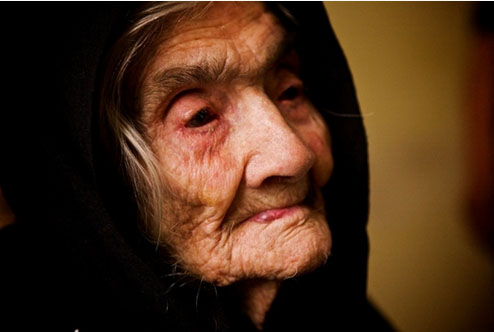The Italian public prosecutor investigated the news of a potential theft of a gene bank in Sardinia, and recently a wave of waves in the media. A technician working in the gene bank said that thousands of sample bottles containing human DNA were lost. But this sensational event quickly collapsed: the bottles were located in a hospital in Cagliari, the largest city in Sardinia, where scientists moved them three years ago. So what is the end of the matter? it's not true. The investigation continued, because this “unnecessary†theft allowed a confusion to be activated again, that is, who really owns the DNA sample and the information related to it. The crime scene of this allegation is the Parco Genos gene bank, which is located in a small town in the city of Perdas de Fugu, in the eastern part of the Sardinian region of Oriastra. There are DNA samples from nearly 13,000 residents in 10 surrounding towns, which were collected in 2000 and are part of a research project funded by the National Research Council of Italy (CNR). Like Okinawa, Japan and Ikaria, Greece, residents of Sardinia have an extraordinary longevity, and the area is a long-lived hotspot. In every town, people's genetic differences in DNA are small, because they have lived relatively isolated lives for centuries. Scientists hope to find genes that fight aging and disease by matching their DNA to their medical history and genealogy. In mid-August, a technician from Parco Genos contacted a public prosecutor in the nearby town of Lanusei, telling him that an automatic alarm software on his mobile phone made an abnormal display of the temperature of a freezer in the gene bank, which should not be there. Anyone appears. After checking, she told the inspector that the drawers of the three freezer boxes were empty. “We found these drawers empty, but we were not sure how many samples there were. We estimated that about 14,000 samples were lost.†Inspector Biagio Mazzeo said he immediately launched a public investigation. However, there are no signs of breaking the door, and the lab does not have any security cameras. Local newspapers reported on the investigation of news, and things were quickly spurred by the state media and overseas media. Sardinia, Italy, is known for centenarians, such as the 107-year-old woman in the picture. Thousands of longevity residents on the island store their DNA in the Parco Genos biomedical gene pool. Image source: Gianluca Colla/NGC This is bothering researchers and Mazzeo. After the media reported the investigation, Mazzeo said in an interview with Nature that it is difficult to imagine who would benefit from the theft of these genetic samples, because those samples did not contain information on donor health and genealogy. Other values. Mario Pirastu, a researcher at the CNR Sassari Institute for Genetics and Biomedicine, who has been in charge of the project since the early 21st century, emphasized that the data was not stored in the Parco Genos gene pool. He stated that they were stored in a laboratory at the Sassari Institute and Shardna Life Sciences. Then the answer came: Pirastu contacted the investigators on September 14th, saying that he knew that the samples were actually 25,000 sample bottles stored in the eye clinic of San Giovanni di Dio Hospital in Cagliari. Part of it. They have been stored there for three years and were transferred to him by himself, and he is using those samples for research. He said that CNR scientists often move some samples for research purposes. "I don't think why Parco Genos researchers will report that the sample bottle was stolen." Dehydrated Cauliflower,Dehydrated Cauliflower For Cooking,Dehydrated Cauliflower For Soup,Pure Dehydrated Cauliflower Powder Xinghua Lvwei Foods Co.,Ltd , https://www.lvweifoods.com